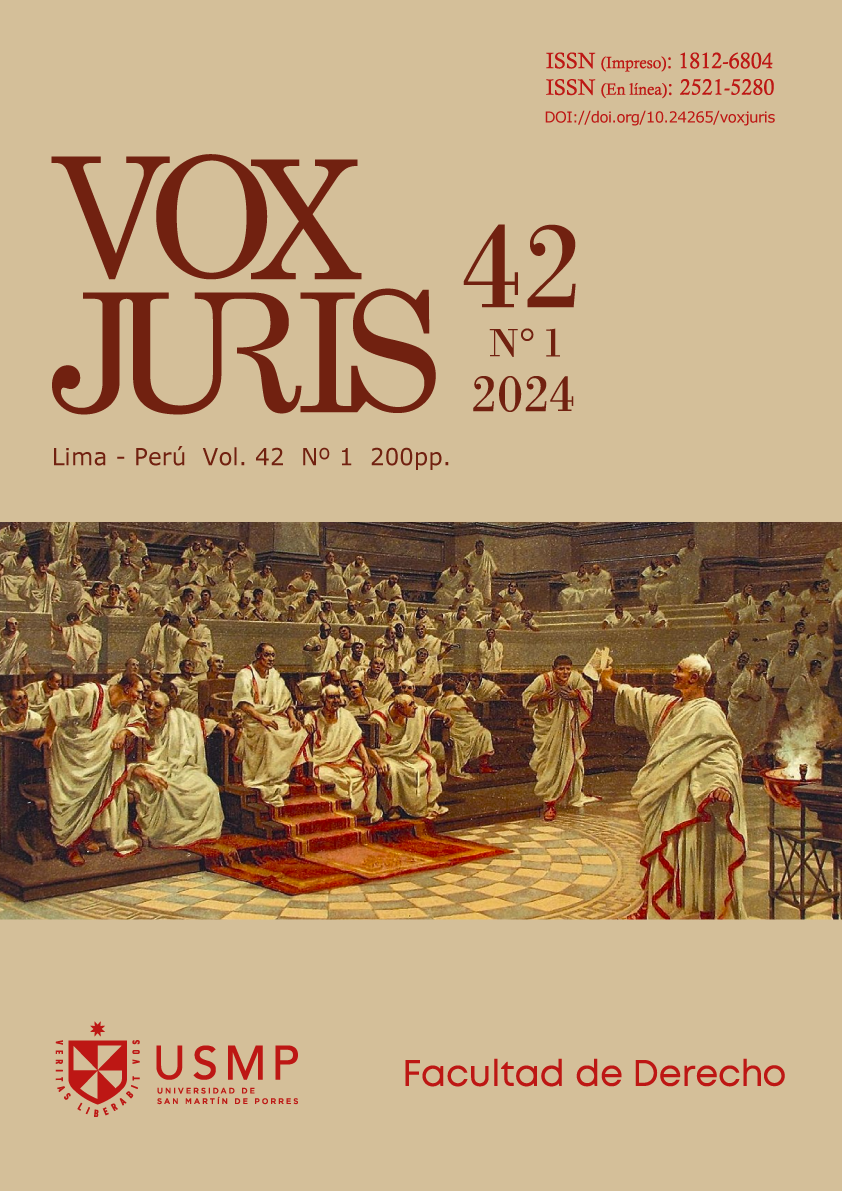ANALISYS TO COMPUTER-RELATED FRAUD
Abstract
The present research work contemplates an analysis of the criminal type of Computer Fraud in Peruvian legislation, also analyzing the classification established in the Convention on Cybercrime or Budapest Convention, also making reference to the Argentine and Spanish legislation for which the qualitative method, oriented to the analysis of the criminal types of the aforementioned regulations, obtaining as a result that our regulations are in strict accordance with what is determined in the international standard; being a classification identical to that established in the Budapest Convention. Thus, it can also be concluded that the criminal type of computer fraud turns out to be broader in our legislation than in Argentine and Spanish legislation, finding ourselves faced with a multi-offensive crime, highlighting the atypicality in mediating consent on the part of the passive subject in the execution of the conduct of the criminal offense carried out by the active subject.
Downloads
References
Aboso, G. (2020). Derecho penal cibernético. Editorial Bdef.
Arocena, G & Belcarce, F. (2018). Defraudaciones. Editorial Hammurabi.
Católica del Perú.
Congreso de la República (1991). Código Penal Peruano.
Congreso de la República (2013). Ley N° 30096 – Ley de Delitos Informáticos
Congreso de la República (2014). Ley N° 30170 – Ley que modifica el artículo 1 de la Ley 29631
Congreso de la República (2014). Ley N°30191 – Ley que modifica la Ley de Delitos Informáticos
Consejo de Europa (2001). Convenio de Budapest.
Consejo Europeo (2022). Informe explicativo del Convenio de Budapest.
Díaz Aranda, E. (2018). Manual de derecho penal. Fondo de Cultura Económica.
El Peruano (2021). Ciberdelitos en el Perú. https://elperuano.pe/noticia/121876-ciberdelitos-en-elperu-se-elevan-denuncias-de-fraude-informatico-ysuplantacion-de-identidad
García Cavero, P. (2019). Derecho Penal. Parte General. Ideas Solución Editorial.
García Cervigón, J. (2008). El fraude informático en España e Italia. Tratamiento jurídico-penal y criminológico. Revista cuatrimestral de las facultades de derecho y ciencias económicas y empresariales. 74, 289-308.
Gil, A. & Hernández Berlinchez, R. (2019). Cibercriminalidad. Dykinson
Jefatura del Estado (1995). Código Penal Español.
Jescheck, H. (2002). Tratado de derecho penal. Editorial Comares.
Mayer, M. (2007). Derecho Penal. Parte General. Editorial Bdef.
Ministerio de Educación y Justicia (1984). Código Penal de la Nación Argentina.
Mir Puig. S. (2008). Derecho Penal. Parte General. Editorial Reppertor.
Miró Llinares, F. (2012). El cibercrimen. Marcial Pons.
Riquert Marcelo, A. (2020). Ciberdelitos. Editorial Hammurabi.
Riquert, M. (2014). Riquert Delincuencia Informática. http://riquertdelincuenciainformatica.blogspot.com/2014/11/estafa-o-fraude-informatico.html
Roxin, C. (2014). Derecho Penal. Parte General. Editorial Civitas.
Salinas Siccha, R. (2013). Derecho Penal. Parte Especial. Editorial Grijley.
Sánchez Ostiz, P. (2008). Imputación y Teoría del Delito. Editorial Bdef.
Villavicencio Terreros, F. (2017). Derecho Penal Básico. Editorial de la Pontificia Universidad
Welzel, H. (1956). Derecho Penal. Parte General. Roque Depalma Editor.
Downloads
Published
Issue
Section
License
Copyright (c) 2023 Anderson Abraham Ávila Trivelli

This work is licensed under a Creative Commons Attribution 4.0 International License.
Los autores que publican en esta revista están de acuerdo con los siguientes términos:
- Los autores conservan los derechos de autor y garantizan a la revista el derecho de ser la primera publicación del trabajo al igual que licenciado bajo una Creative Commons Attribution que permite a otros compartir el trabajo con un reconocimiento de la autoría del trabajo inicial en esta revista.


